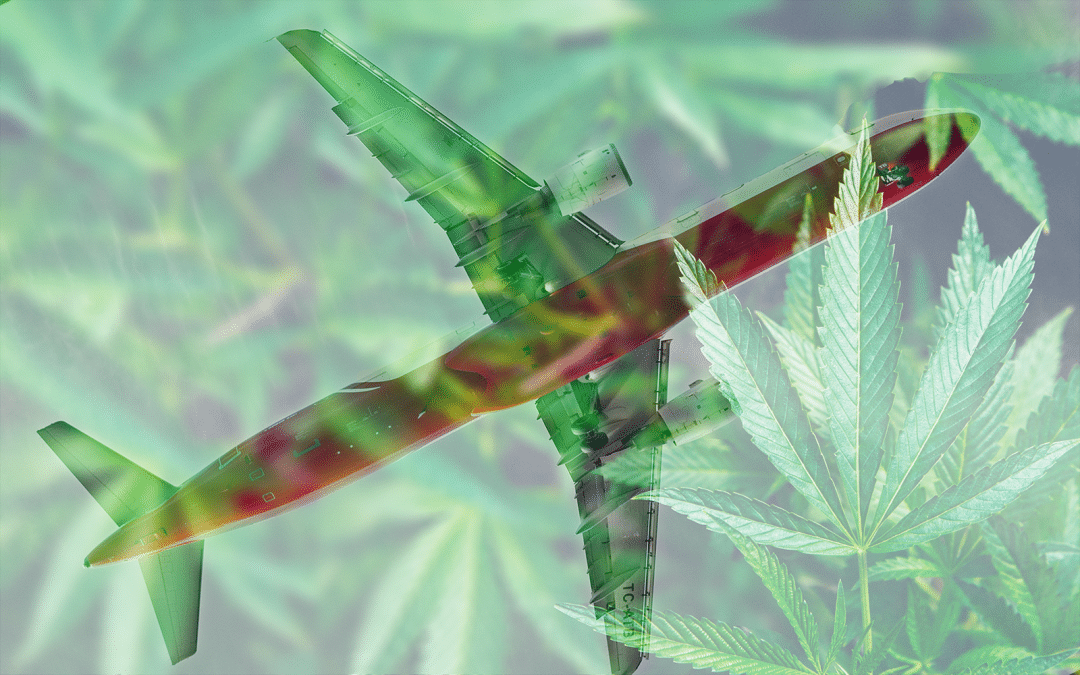Legalization of marijuana is gaining traction in some states within the United States, yet thus far the drug is not being sold in airports. Where marijuana is legal, some airports have banned possession on airport property. Yet other controlled substances – like alcohol and tobacco – enjoy robust sales in airports globally, leaving some to wonder if marijuana could be next.
Coleman Swartz, director of commercial development for the Ottawa International Airport Authority, believes there could be economic opportunities for airports in the future. Recreational use of marijuana is currently illegal in Canada, but that’s expected to change as early as this summer.
Canada’s federal “Cannabis Act” is currently before the Senate for review. Regulations are likely to vary by province. Provinces will also be able to determine where and how marijuana can legally be consumed.
In a recent Airports Council International – North America webinar, Swartz said he “cannot see why not,” when asked about possible sale of marijuana in airports. When asked about the potential for economic opportunities from marijuana in airports, Swartz said, “In Ontario in particular, liquor is currently regulated by the province, but duty free stores exist which are able to sell liquor and tobacco, which are not provincial entities,” he said.
Legalization in Canada won’t come without potential complications, particularly in regards to travel between the United States and Canada, and regulations will have to be determined in regards to travelers coming from regions where marijuana is legal to regions where it is restricted.
Thus far, no North American airport allows sales of marijuana on its premises. But as medical and recreational-use marijuana have been legalized in various states throughout the United States, the question of its policing in airports has become even more complex. Add to that Canada’s plan to vote on legalization legislation this summer, and the issue of marijuana in North American airports becomes downright complicated.
In the ACI-NA webinar, Swartz, along with David Bannard, partner at Kaplan Kirsch & Rockwell LLP, and Greg Phillips, director of aviation for Colorado Springs Airport (COS), discussed how airports are dealing with marijuana legalization. The speakers also examined the risks and possibilities marijuana legalization presents for airports in the future.
Bannard explained the changing face of marijuana laws and the impact they have had and might pose in the future for North American airports. While more than 50 percent of the states have legalized marijuana for medicinal or recreational use, marijuana remains a Schedule I controlled substance under U.S. federal law. Marijuana use is also limited by the Drug Free Workplace Act and other federal restrictions.
Even though an Obama administration memo bolsters individual states’ rights to regulate marijuana on their own, a more recent memo from the Trump administration said, “Previous nationwide guidance specific to marijuana enforcement is unnecessary and is rescinded, effective immediately.”
According to Bannard, Transportation Security Administration officers are not law enforcement officers. Therefore, they can refer cases to local law enforcement. In other words, airport marijuana regulations in some ways revert to local law instead of federal law.
Overall, regulation differs by airport in regions where recreational or medical marijuana has been legalized.
“Denver International [Airport], for example, bars possession, consumption, display, transfer, distribution, sale, transportation or growth of marijuana on any property at the airport,” said Bannard. “The other thing I think is interesting is that they have taken sort of a reputational stand that they aren’t advertising marijuana or marijuana-related merchandise. So you can’t get a T-shirt with a marijuana leaf as the Mile High City.”
Portland International Airport (PDX) maintains similar restrictions; neither airport employees nor passengers traveling out of state can possess marijuana in secured areas, sterile areas or air operations areas.
Colorado legalized medical marijuana in 2000, but by January 1, 2014, the state allowed businesses to sell recreational marijuana for the first time. Recreational marijuana isn’t completely unregulated in Colorado, though. Counties and municipalities can prohibit or restrict sales within their jurisdictions. Phillips gave the example of how the more conservative city of Colorado Springs allows medical marijuana dispensaries but prohibits recreational sales.
At COS, possession of marijuana within the terminal or on the airfield is prohibited. Passengers can’t pass through screening checkpoints with marijuana, and it isn’t allowed in checked bags either. If passengers arrive at the airport in possession of marijuana, they are permitted to dispose of it in a legal manner, such as depositing it in the airport’s designated amnesty box, or giving it to a friend outside the building.
Some marijuana legalization opponents state that federal law maintains jurisdiction due to the Commerce Clause of the U.S. Constitution. However, Bannard suggests that airports develop their own rules and regulations within local and federal law.







